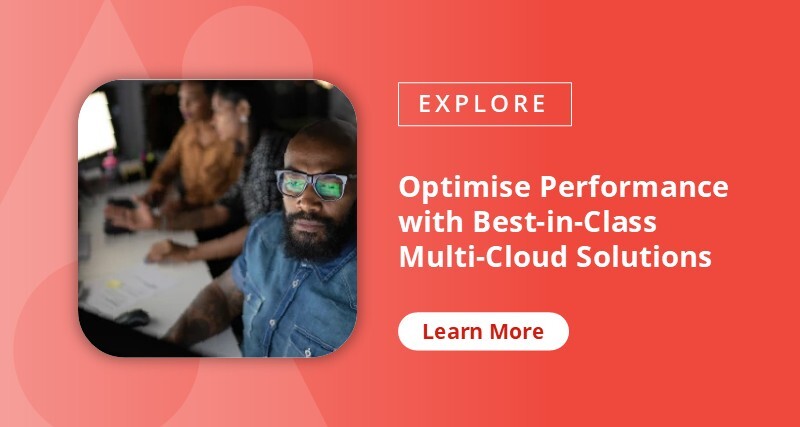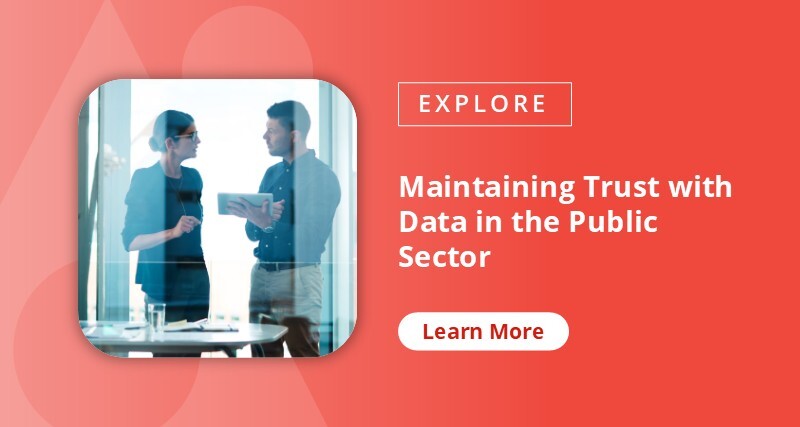Singapore’s public sector is at a pivotal moment. While 80% of government systems have migrated to the Government on Commercial Cloud (GCC) and Smart Nation initiatives have digitised nearly 99% of government services, the next frontier isn't just about moving to the cloud — it's about harnessing the true power of AI to transform governance.
But is your agency ready? The next phase of digital transformation focuses on leveraging AI to predict, optimise, and act in real-time to enhance citizen services. To achieve this, agencies need a hybrid AI and cloud approach that balances security, efficiency, and innovation.
Initially, the public sector faced significant hurdles in adopting AI and cloud technologies, such as data privacy concerns, security issues, and the complexity of integrating new technologies with existing systems. Despite these challenges, the drive for enhanced efficiency, cost savings, and improved citizen engagement has spurred digital transformation efforts.
In this blog, we will further explore the relationship between AI and cloud technologies, and the best approaches in implementing these technologies to aid the public sector in efficiency and better citizen services.
Navigating Multi-Cloud Adoption in Singapore's Public Sector
Singapore’s cloud strategy is built around three distinct models: the government private cloud (GPC), Government on Commercial Cloud (GCC), and public cloud centre (PCC). However, the focus is not on choosing a single cloud model but rather on adopting a hybrid multi-cloud approach. This strategy leverages the strengths of each cloud model to create a robust, flexible, and secure cloud environment.
To start, a hybrid multi-cloud approach allows organisations to optimise their cloud infrastructure by selecting the best services from each provider to meet specific needs. Here’s why this approach is particularly beneficial for the public sector in Singapore:
- Flexibility and scalability. A hybrid multi-cloud environment allows government agencies to dynamically scale computing resources based on citizen demand and operational needs — from handling seasonal surges in usage to supporting new digital initiatives.
- Cost efficiency. A hybrid multi-cloud approach allows agencies to allocate workloads across platforms based on their specific needs, ensuring optimal resource utilisation. This leads to greater efficiency, faster service delivery, and better outcomes — all while maintaining fiscal responsibility.
- Enhanced security and compliance. Sensitive data can be stored in private clouds (GPC), while less sensitive data and applications can be hosted on public clouds (GCC and PCC). This approach helps reduce risk, maintain operational flexibility, and ensure compliance with the Instruction Manual for Infocomm Technology and Smart Systems (IM8) and other regulatory frameworks.
- Avoiding vendor lock-in. A multi-cloud strategy reduces dependence on a single provider, which can help avoid costly vendor lock-in — a key consideration for long-term digital planning in the public sector. It also ensures flexibility in adopting future technologies or shifting workloads as priorities evolve.
- Innovation and agility. Different cloud providers offer unique services and innovations. For example, Amazon Web Services (AWS) with tools like SageMaker for machine learning, Azure with AI capabilities and Microsoft ecosystem integration, and Google Cloud Platform with Big Query for powerful data analytics. By adopting a multi-cloud approach, the public sector can leverage the latest technologies and innovations from various providers, accelerating innovation across citizen-facing and backend services.

AI-Powered Public Services: Transforming Citizen Experience and Efficiency
Coupled with cloud infrastructure, AI is also revolutionising service delivery and operational efficiency through its capabilities.
Here are some standout examples of how AI is best implemented in the public sector:
- Predictive analytics for better planning and response. Singapore’s public agencies can harness AI-powered predictive analytics to improve planning accuracy and service responsiveness. For instance, AI and machine learning models can forecast demand surges — such as increased hospital admissions, public transport usage, or waste collection needs based on historical and real-time data. This enables agencies to allocate resources more effectively and reduce service bottlenecks before they happen.
- Generative AI for hyper-personalised citizen services. Imagine a scenario where AI tailors government services to individual needs: AI could provide tailored healthcare recommendations based on citizen's health records and lifestyle inputs. In education, generative AI (GenAI) could tailor learning pathways to meet the unique learning pace and interests of each student. This empowers agencies to deliver services that feel truly customised, improving satisfaction and engagement.
- AI for citizen engagement. AI technologies are being used to create more engaging interactions with citizens. For example, the OneService chatbot allow residents to report municipal issues via WhatsApp and Telegram, automating case details extraction and routing to relevant agencies. This has significantly reduced response times, improved service delivery and enhanced overall citizen engagement.
- Agentic AI adoption for officer efficiency. The adoption of AI agents is transforming the back-end operations in government agencies. These AI assistants help public officers analyse data, generate reports, write code snippets, or even identify security threats in the digital environment. This not only boosts productivity but also allows officers to focus on more strategic tasks - ultimately increasing the agency’s capacity to innovate and respond faster.
Combining AI capabilities with a hybrid multi-cloud strategy is redefining public sector operations by breaking down silos and fostering a more unified approach to service delivery, translating to a faster, more efficient, and more responsive provision of citizen services.

Implement a Secure and Tailor-Fit Cloud and AI Solutions with AvePoint
The integration of AI and cloud technologies has been transformative for the public sector, significantly enhancing efficiency, productivity, and service delivery. This transformation is exemplified by Singapore's Smart Nation initiative, which highlights the importance of digitisation in improving government agencies' productivity and the quality of citizen services.
For the public sector to reap the benefits of adopting a hybrid multi-cloud approach, having a robust data foundation with strong security measures, proper data governance, and effective lifecycle management, is crucial.
Once these are in place, agencies can leverage AI and cloud solutions tailored to their needs to enhance decision-making and operations. Ultimately, the integration of these technologies offers immense potential for the public sector, leading to significant improvements that benefit citizens and society as a whole.
Explore how AvePoint can help build secure and tailor-fit cloud solutions for Singapore’s public sector.


